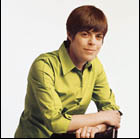Are you a journalist? Please sign up here for our press releases
Subscribe to our monthly newsletter:

Look at a living cell. It has genetic software that controls its behavior, development, and destiny.
The term "biological computer" seems to turn up in any discussion of possible future inventions. But Dr. Naama Barkai of the Weizmann Institute's Molecular Genetics and Physics of Complex Systems Depart-ments says that we already possess biological computation systems.
In fact, such systems existed long before the appearance of the first human beings. "Look at a living cell," says Barkai. "It has genetic software, activated by a complex system that controls gene expression. It also has a system that receives the instructions generated by the software and manufactures proteins accordingly. And the proteins themselves operate as a highly sophisticated system: they receive instructions, both internal and external, on the basis of which they perform computations affecting cell behavior, cell development, and at times, cell death."
Barkai is currently attempting to expose the computational principles underlying the actions of biological systems. Using the knowledge of physics she acquired as a doctoral and postdoctoral researcher, she aspires to build a statistical model that will enable her to understand these computational processes, and to anticipate their workings. These are, in fact, the most basic processes within a living cell: they determine its fate and shape its future.
Building such a model is similar to the high-tech process of "reverse engineering" _ that is, producing a new product by observing and understanding the underlying principles of an existing product. Such a model may someday enable us to intervene in the natural "biological computation" process _ to prevent the development of cancer, for example, or to encourage beneficial cell processes.
Dr. Barkai is the recipient of the 1999/2000 Sir Charles Clore Prize.